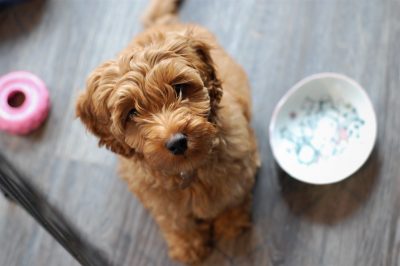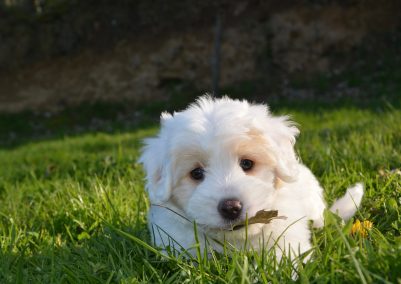Bringing a new puppy into your household is nothing short of an exciting time for you and your family members. It is easy to get caught up in the joy of having your new four-legged friend. It is safe to say you spent a significant amount of time researching what breed of dog you wanted, what necessities you needed to purchase, and what veterinarian you would be using. Another equally important task, that you may have overlooked, is planning your puppy’s training.
Training your new puppy should be on the top of your priority list. Training your puppy is your best bet in raising a well-balanced dog who has self-control and exhibits acceptable behavior. Below are several best practices for how to teach your puppy basic commands:
Train Early and Train Often
The best time to start training your puppy is as soon as you bring him home! It is easier to start training your puppy immediately than to accidentally reinforce and encourage bad behavior that will be harder to correct down the road. You should make it a goal to train your puppy as much as possible while avoiding burnout.
Short Periods of Time
Keep in mind that your puppy will have a very short attention span. Your home is a new environment filled with new places and things to explore. Be sure to keep training sessions limited to a 5 to 10-minute maximum. Having short, more frequent periods of time for training throughout the day will lead to more success than attempting one long training session.
Basic Phrases First
Before you think about diving into teaching your puppy how to sit, stay, or come, you first need to start at the beginning. It is critical that you teach him the two most important basic phrases, “Good” and “No.”
These two phrases will allow your puppy to differentiate between acceptable and unacceptable behavior. Once he has mastered these two basic phrases, you will be able to train him on more complex commands.
You Are the Pack Leader
Remember that you are the pack leader in your household! If you expect your puppy to listen and learn from you, you need to demonstrate to him that you are in charge. Be a confident and strong leader, and your puppy will learn to respect you.
Stay Positive!
Training a puppy is not an easy task. There will be many moments of frustration throughout the process. However, it is important that you remember to stay positive! Puppies are essentially the same as a human infant; they are new to this world and trying to figure out how everything works.
They need your patience and guidance to help them be successful! Try not to let setbacks and frustrations take away your positive attitude. When you keep a positive attitude, your puppy is more likely to achieve success in their training.
Positive Reinforcement Only
You will need rewards to incentivize your puppy in the training process. These rewards can range from treats, attention, play, praise, and being let outside to run around. Be creative with the rewards you use and try not to rely solely on food. Your puppy will respond just as well to affection and praise as he does for a treat!
It is imperative that you use only positive reinforcement. Your puppy is young and does not understand or respond in the same way a human would for being yelled at or punished for their behavior. You can end up doing more harm in the long-run through using negative reinforcement with your puppy. Yelling and the use of punishment can lead to your puppy becoming frightened of you or may even turn them to act out of aggression towards you. You can avoid this by only relying on positive reinforcement!
Training your puppy will be time-consuming and, at times, a challenge. The time you put in now teaching your puppy the basics will pay out ten-fold in the long run with a well-behaved dog in the future. Remember to have fun with the process and use these training sessions as a time to bond with your new puppy!






